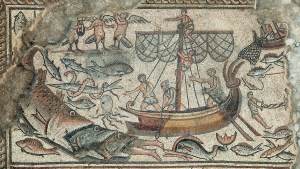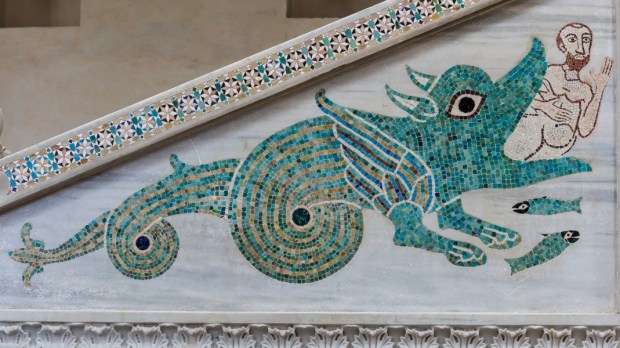Of the many Old Testament resurrection prophecies, one is the most important — because Jesus himself spoke about it.
“Just as Jonah was in the belly of the whale three days and three nights, so will the Son of Man be in the heart of the earth three days and three nights.”
After reading all I could about the Sign of Jonah for a podcast, here are four lessons I learned.
First: The Resurrection is more important than the Passion.
Brant Pitre in his book The Case for Jesus shares a “true confession”: “With all due respect to Jesus,” he said, he always found his Jonah comparison “somewhat forced.”
But then he read the book of Jonah with the resurrection in mind and discovered something that amazed him. “The book never claims Jonah remained alive for three days and three nights in the fish,” he said. “It pretty explicitly says that Jonah died and went to the realm of the dead.”
The book says he went to the “belly of Sheol … whose bars closed upon me forever.” Then, after he was deposited back on shore, God said the same word to Jonah that Jesus said to Jairus’s daughter: “Koum,” which we translate “Arise.”
Bibles make a very big deal out of Jesus’ predictions of his passion, counting down the number of times he predicted his passion. But it’s fascinating to note that his Jonah resurrection prediction comes before all that.
There’s a spiritual lesson there: The Passion is important, but the Resurrection that gives it its meaning and power is more important.
Second: I need to learn to trust God without demanding signs.
“An evil and unfaithful generation seeks a sign, but no sign will be given it except the sign of Jonah,” Jesus said.
Jesus strongly objects to the Jewish leaders’ desire for a sign. What kind of sign do they need? He has been working miracles left and right — he raised a girl and a young man from the dead, he multiplied loaves and fishes, and he cured all kinds of ailments.
More than that, they have heard his wisdom: his Jonah-like call to repentance, the Sermon on the Mount and the parables of the kingdom.
Isn’t that enough?
It should be — for them, and even more for us, who have the beauty of Church teaching, with a balanced answer to every issue, the witness of the saints, and the grace we have seen in our lives. But I, for one, still anxiously pray, “Can you show me that you’re really listening?”
The Sign of Jonah says to trust instead.
3: Your vision has no power until you share it.
I recently read the flawed but fascinating book Black Elk Speaks and one phrase stood out: “A man who has a vision is not able to use the power of it until after he has performed the vision on earth for the people to see.”
Black Elk converted to Catholicism, but he is speaking here of his native religion. Meaningful visions were not uncommon for the Lakota — and the visions would bring a special new character to the person: strength in battle, or healing ability.
But there was one caveat: You had to share the vision; memorize it and re-enact it, teaching it to others. That’s what Jonah learned, the hard way. He didn’t want to share his message, and as long as he refused, his life was stormy and dead. When he finally did share it, Divine Mercy carried the day.
We too often act like secret admirers of God. But he didn’t die and rise to improve our interior feelings. His resurrection is his “Good News” for the world — but it’s neither good nor news if we keep it to ourselves.
4. God brings the storms, God brings the calm, and God brings the victory.
“At the judgment, the men of Nineveh will arise with this generation and condemn it,” Jesus said, “because they repented at the preaching of Jonah; and there is something greater than Jonah here.”
Last, this year on my podcast about Christ’s life I have been telling the tale of the several storms the Apostles faced with Jesus. We face storms with Jesus also: Storms in our work life, storms in our home life, storms in our faith life.
When we run away from God, the storms consume us. When we turn to him in the midst of the storm, everything changes. God can do in our time what he did in Ninevah in Jonah’s time.
The work will be his, not ours. But it will only start to work when we do.


